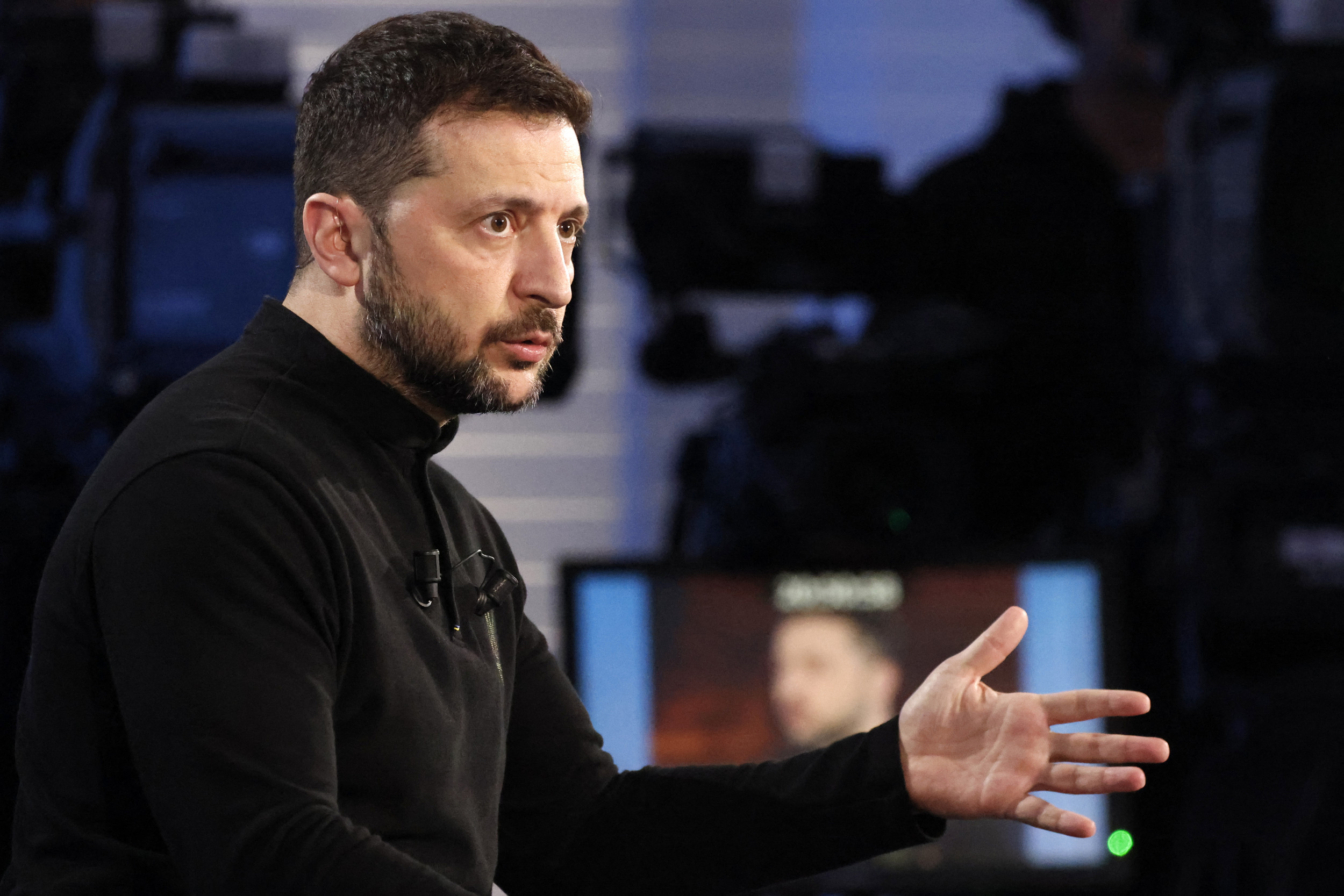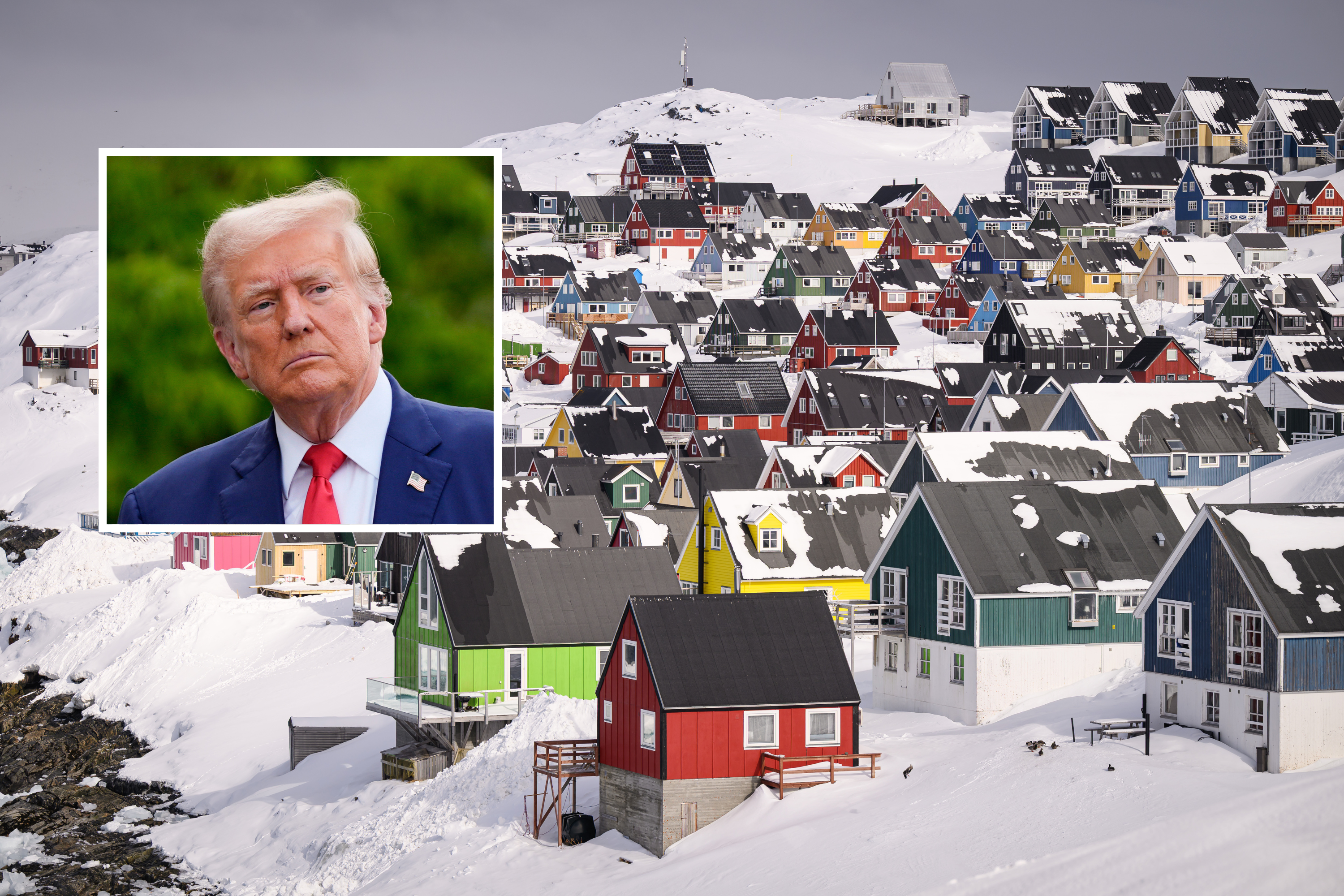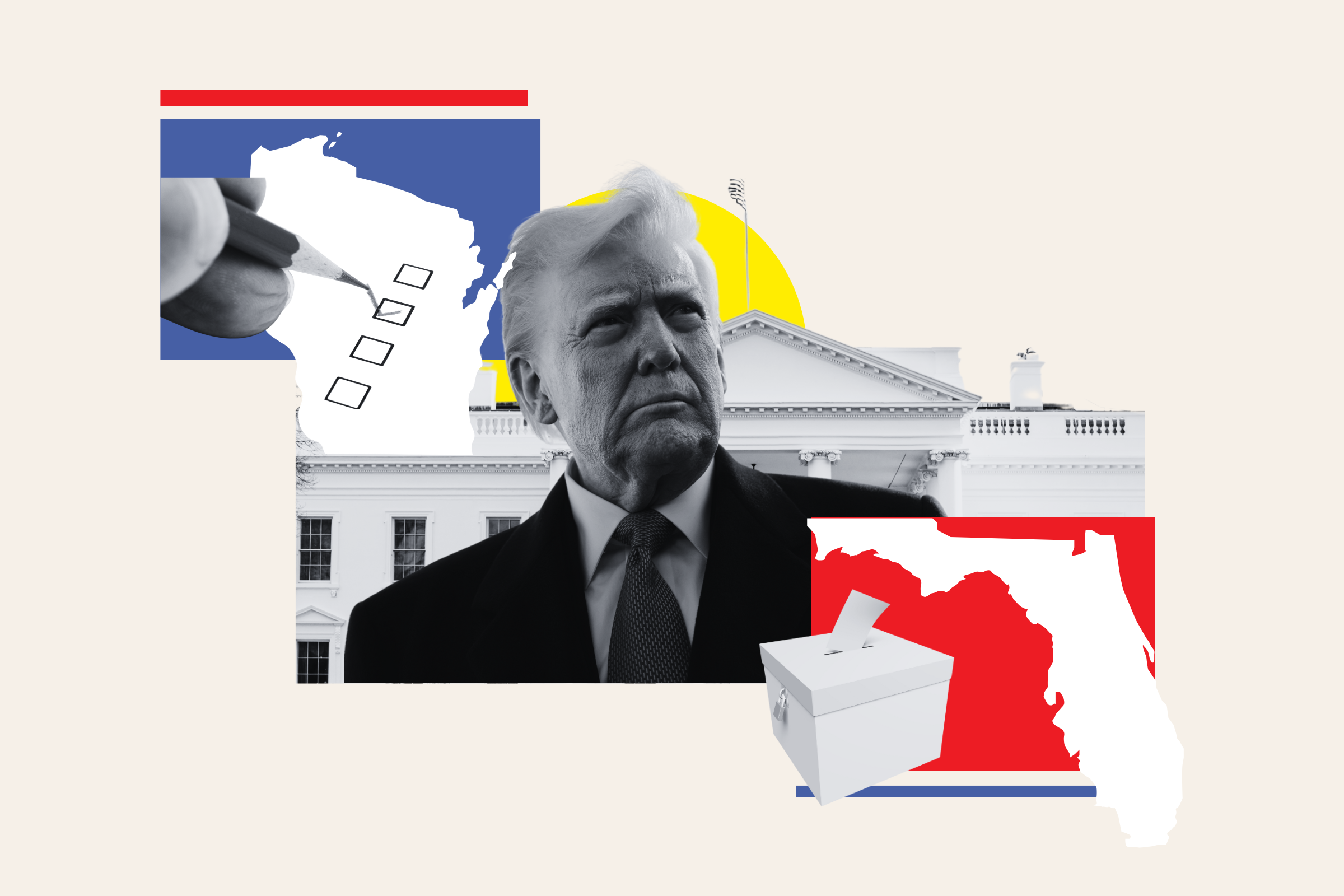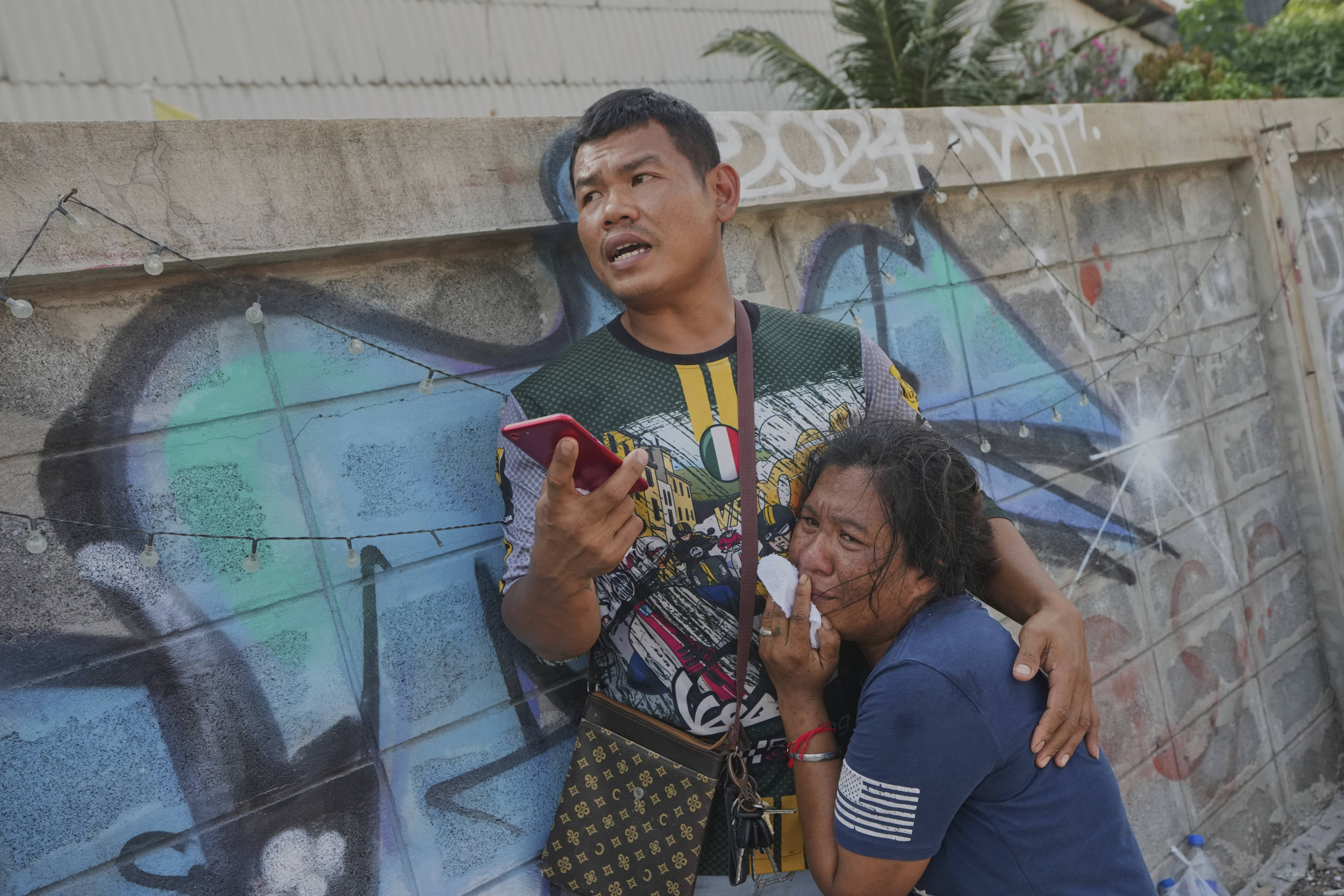Ukraine's President Volodymyr Zelensky said Russia sent the world a "clear signal" about its intentions on peace after another night of "large-scale attacks" on his country.
Zelensky accused Russia of sending 117 drones overnight, mostly Iranian-made Shaheds and targeting civilian infrastructure, including homes, though he said a "significant number" were shot down.
"Launching such large-scale attacks after ceasefire negotiations is a clear signal to the whole world that Moscow is not going to pursue real peace," Zelensky said Wednesday morning in a post on X, formerly Twitter.
"Since March 11, there has been a U.S. proposal for a total ceasefire, a complete halt to strikes. And literally every night, through its attacks, Russia keeps saying 'no' to our partners' peace proposal."
Why It Matters
On Tuesday, the White House unveiled an agreement between Russia and Ukraine to "eliminate the use of force" in the Black Sea and work on a ceasefire against each other's energy infrastructure.
President Donald Trump is attempting to broker ceasefires that he hopes will lay a path toward a full peace deal to end Russia's war on Ukraine. Moscow launched its full-scale invasion in February 2022.

What To Know
In recent days, Russia has also accused Ukraine of conducting strikes on its territory that violate the spirit of agreements brokered by the Trump Administration, such as an explosion at a gas pipeline station in Sudzha. Kyiv denied responsibility.
On Wednesday, Russia's Defense Ministry accused Ukraine of further attacks on civilian energy facilities and said Kyiv is "doing everything to disrupt the Russian-American agreements reached on step-by-step measures to resolve the Ukrainian conflict."
Mutual strikes and accusations underscore how fragile the emerging truces between Ukraine and Russia are going to be—and the scale of the challenge in securing a proper, lasting peace.
Trump has said he can no longer tolerate the war's destruction, loss of life, and vast cost to the American taxpayer of military aid for Ukraine's defense. But Kyiv's other Western allies, especially in Europe, fear the U.S. president will too readily compromise with Russia.
After detailed talks in Saudi Arabia between delegations from the U.S., Russia, and Ukraine, Trump's White House confirmed on Tuesday a breakthrough.
In two separate statements on the outcomes of the talks between the sides, the White House said Moscow and Kyiv had "agreed to ensure safe navigation, eliminate the use of force, and prevent the use of commercial vessels for military purposes in the Black Sea."
Moreover, the United States "will help restore Russia's access to the world market for agricultural and fertilizer exports, lower maritime insurance costs, and enhance access to ports and payment systems for such transactions."
Russia and Ukraine also agreed "to develop measures for implementing" the "agreement to ban strikes against energy facilities of Russia and Ukraine."
But while these agreements signal important progress, large obstacles to peace remain, particularly over the recognition of Ukrainian territory now occupied by Russia and the future of Ukraine's security architecture.
Kyiv wants guarantees against future Russian aggression, such as the presence of peacekeeping troops from NATO member states, which Moscow has signaled it will not accept.
What People Are Saying
In an interview Tuesday with Newsmax, Trump considered the possibility that Putin could be stalling on ending the war.
"I think that Russia wants to see an end to it, but it could be they're dragging their feet," said Trump, comparing the negotiation to his own experience in real estate.
"I've done it over the years. I don't want to sign a contract. I want to sort of stay in the game, but maybe I don't want to do it."
What Happens Next
There will be further talks to finalize the technical details of the ceasefire on energy infrastructure. It remains to be seen if these partial ceasefires will hold long enough for negotiations to succeed in achieving a full peace deal, as Trump hopes.
This article includes reporting by The Associated Press.
fairness meter
About the writer
Shane Croucher is a Breaking News Editor based in London, UK. He has previously overseen the My Turn, Fact Check ... Read more




